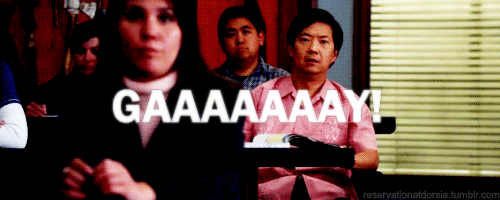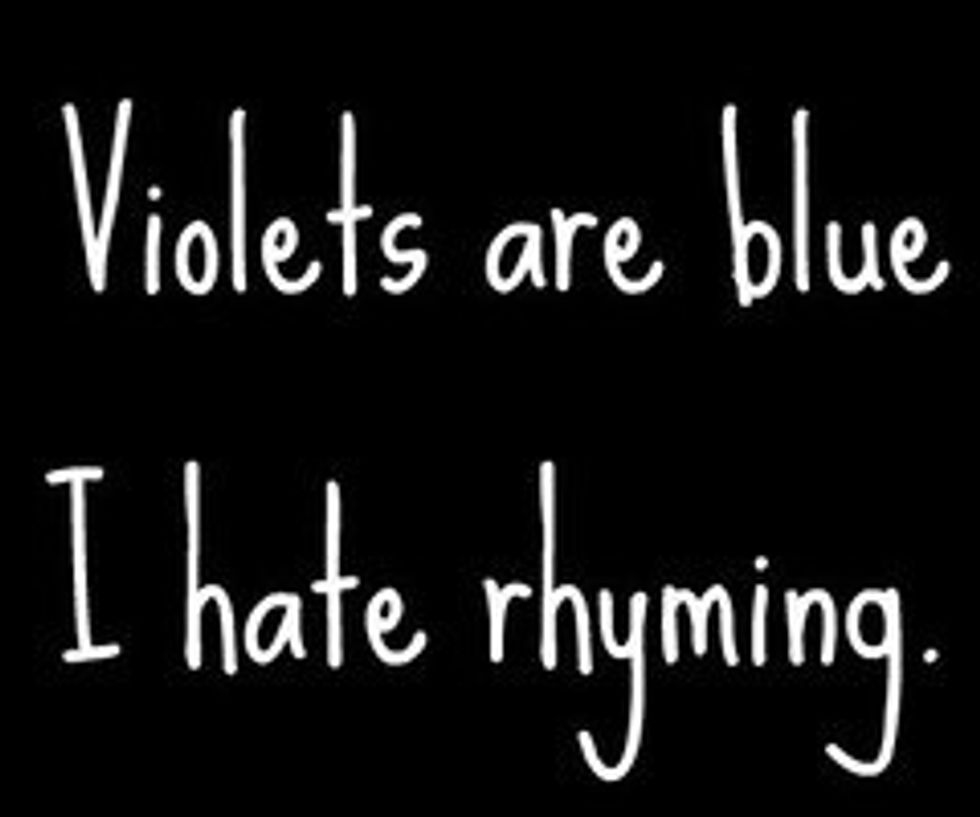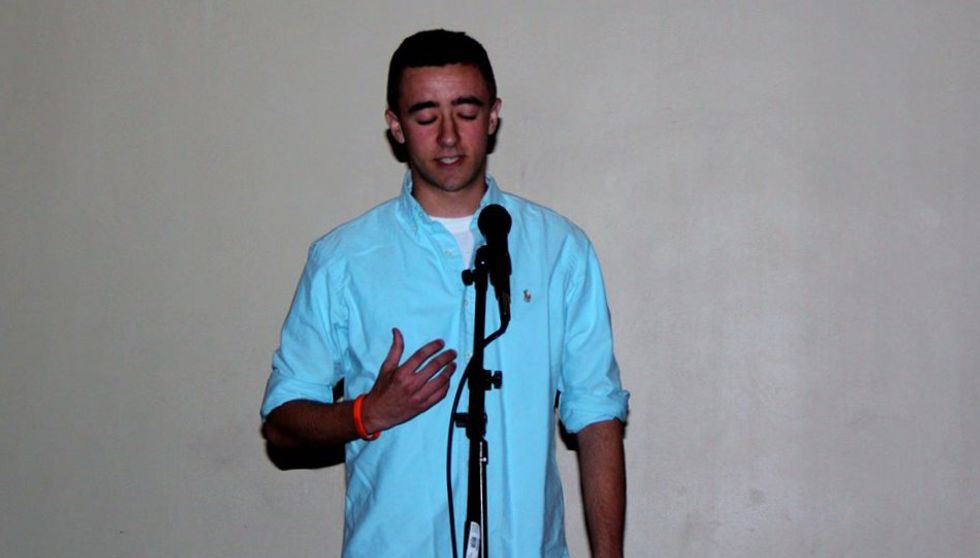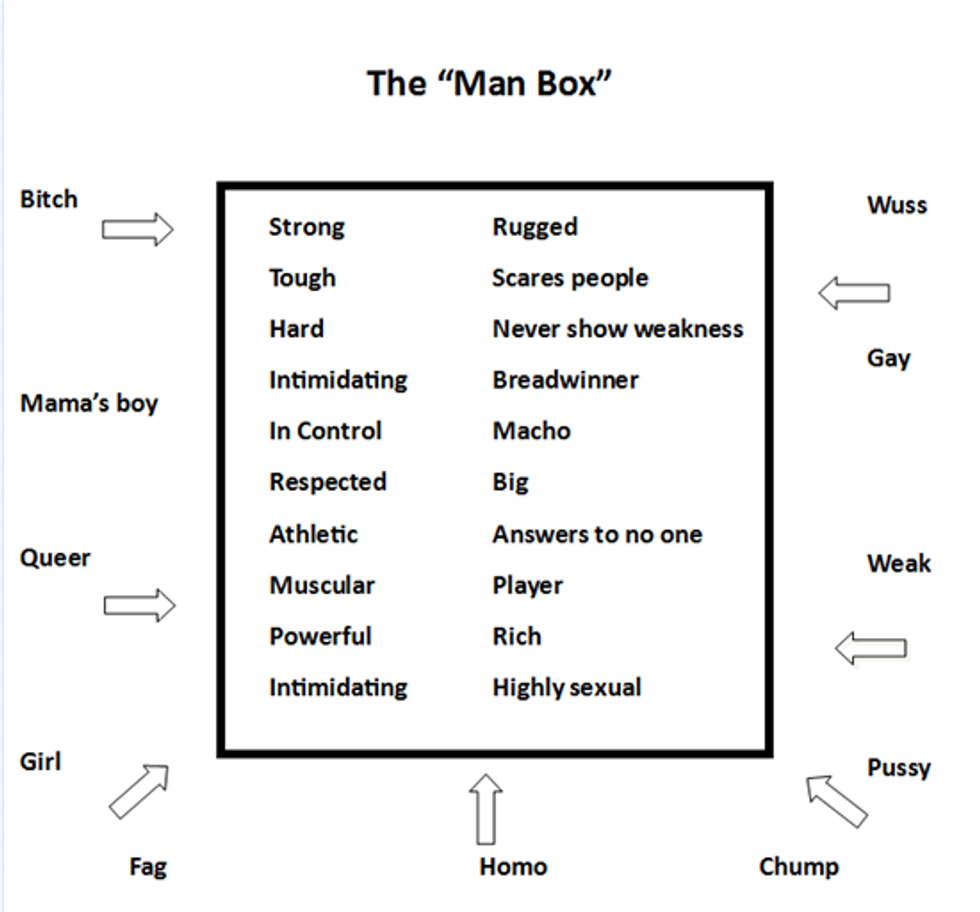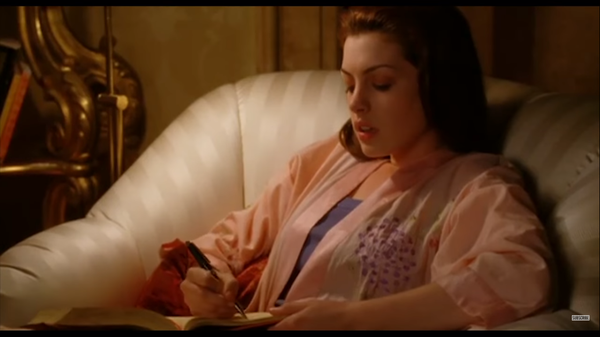Utter the word “poetry” to any high school English class and the resulting groans will cause the average passerby to think that a room full of zombies resurfaced from their graves. Shakespeare, Walt Whitman, and Edgar Allen Poe no longer hold the same political or romantic sway as they once did. A few years ago, I was unable to survive more than several minutes of Robert Frost or William Shakespeare, and held particular disdain for time we spent in high school English courses attempting to dissect and comprehend the meaning from metaphor-laden poems. Inspiration in short-form literature is most commonly found now in the lyrics of rap and hip hop songs.
Why would any young adult attend a bland, sophisticated poetry reading when a music concert provides relatable lyrics in a format that energizes the audience? Even worse, what self-respecting man would ever share thoughts on emotions and *shudders* feelings? Especially when the reaction to many young men who choose to express themselves specifically through poetry often looks like this:
Fast-forward now to Sophomore year of college. A research project for a required English course asked me to conduct a personal experiment that completely contradicted my normal character. Up to that point, my hobbies consisted mainly of the following:
1. Sleeping
2. Eating
3. Army ROTC
4. Sports
5. More sleeping and eating as time permitted
So, thinking I had struck gold with an idea for the project, I embarked on a daunting task for any manly, self-respecting cadet and aspiring military officer: becoming a poet. The goal of the project was to write several pieces of poetry and present them during at least three public open mic nights. It wouldn't be easy; although I was accustomed to writing and public speaking from high school debate clubs, I always avoided talking about personal topics like the plague. Not to mention the obstacle that kept me from ever doing any serious songwriting:
Settling on performance poetry, a form that more closely resembles a monologue and doesn't require a rhyme scheme, helped settle one issue blocking my path. But what remained was of much more serious concern. Upon the start of the project, I held a genuine fear of how others would perceive not only the poems, but also the very fact that I wrote poetry.
Growing up, I attached negative connotations to poets based on my interactions with people I knew who wrote and performed. Although I'm not proud to say it, during high school I usually perceived the kids at the microphone on open-mic nights as socially inept and rejected by their peers. The fact that I was now venturing into the same artistic class that I once viewed so harshly troubled me in two ways. First, did I grossly misjudge the personality of students based on false stereotypes of teen poets? Secondly, and more selfishly, would my peers mistakenly attach the same stereotypes to me that had I connected with seemingly angsty and emotional high schoolers? Especially in an alpha male-filled military environment with clear expectations of what it means to be a "man", poetry didn't seem like it would fit too well with the image I try to maintain as a cadet.
In an effort to better understand these questions, I conducted a survey of college students and recent graduates to determine societal views of poets and poetry. Respondents were asked if negative stereotypes exist of people who write or perform poetry, and given a free response section to describe what those stereotypes may be. Surprisingly, only a little over one third of all respondents (38%) believed that negative stereotypes exist of poets. However, among those respondents, their ideas of which stereotypes exist are nothing less than brutal. Several of the most popular responses for male poets included “feminine, homosexual, too emotional,” and “gay”; all of which were attacks for not being straight, strong, and sexually dominant. Female poets also received a harsh review, depicted as “depressed, overly emotional, over dramatic,” and even “crazy”.
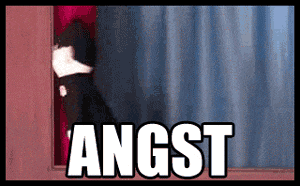
As a future military officer, these perceptions seemed to threaten the very existence of my identity as a cadet and a man. Especially in a hyper-masculine environment that encourages the maintenance of a stoic, unemotional demeanor, it did not seem that identities as a poet and a military leader could coexist. Even to close friends, I explained away my poetry activities as the requirement of a paper rather than a new and exciting artistic direction I happily pursued.
The poem I had prepared for my first open-mic performance touched on topics such as heartbreak, and the difference between intimacy and sex. After the survey results showed an expectation for men to be sexual and never show weakness, it seemed like my performance was about to call to question whether I could even be considered a man. To make matters worse, a half dozen of my buddies in the Corps heard about my upcoming performance and surprised me by showing up right before I stepped on stage to watch the endeavor. Needless to say, when I walked up to the mic I was expecting the worst.
What happened instead was nothing short of shocking.
For a few very, very painful seconds there was silence. Then, there was raucous applause. Within the next 24 hours, an untold number of friends busted down the door to my room, asking if I had seen the two "VT Crushes" that my performance garnered. Rather than the snide, behind-the-back comments I had been preparing for, my peers heaped praise upon me. Encouraged how enjoyable the performance was and the feedback I received, I decided to continue the experiment beyond the project with more performances and signing up for an introductory creative writing class. The unexpected journey turned me into an accidental poet; by the end of the year I had turned Creative Writing into a second major, and pieces I wrote were being published and winning cash prizes in creative writing contests.
So, what's the takeaway from the experience? At first glance, it might seem like the moral is "write poetry, get girls, win money." However, the message I'm trying to get at affects all guys, and deals with something known as the "Man Box".
The box contains all the expectations for what a stereotypical "man" is supposed to be, and is reinforced by outside pressure like the survey results I gathered. Although many of the qualities in the box are positive, a fear that many of us have trouble overcoming is that stepping outside the box makes us less of a man.
Being a man isn't about doing certain manly things or fitting inside the mold perfectly. True manliness means doing what you love to do, and being confident about your identity regardless of what others think. So "man up" - whether that means being really involved in sports, writing some deep poetry, chopping down trees, or letting yourself cry a little at sad movies (first five minutes of Up, I'm looking at you).
Try something new, even if no one thinks it's cool. And who knows - you might end up getting a few VT Crushes out of the deal too.




